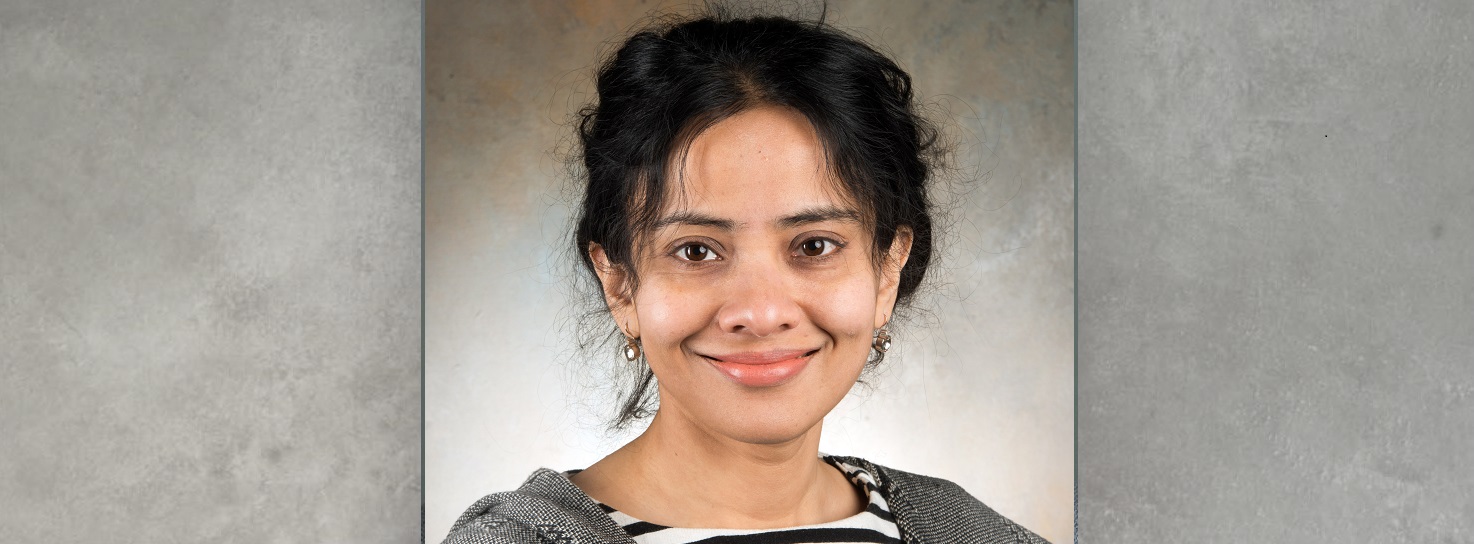Anindita “Oni” Basu, PhD, assistant professor of medicine in the Section of Genetic Medicine has received the prestigious National Institutes of Health (NIH) Director’s New Innovator Award.
These awards, part of the NIH’s High-Risk, High-Reward Research Program, are given to exceptionally creative scientists proposing high-risk, high-impact research at all career stages. The New Innovator Award, funded through the NIH Common Fund, is focused on supporting early career researchers, supporting unusually innovative research from early career investigators who are within 10 years of completing their final degree. This year, 53 researchers were recognized with the award.
“The breadth of innovative science put forth by the 2020 cohort of early career and seasoned investigators is impressive and inspiring,” said NIH Director Francis S. Collins, M.D., Ph.D. “I am confident that their work will propel biomedical and behavioral research and lead to improvements in human health.”
Since arriving at UChicago in 2016, Basu has worked on a variety of research projects. She investigates complex biological systems using single cell genomics — isolating individual cells and sequencing their genetic information to get a better picture of cellular differences within a tissue sample. This, in turn, provides insight into the unique subtypes of cells and their functions within a given tissue.
Basu trained in the laboratories of Aviv Regev, PhD, and David Weitz, PhD, both pioneers in the field of single-cell genomics and microfluidics. Basu herself is a co-inventor of the first high throughput single-cell and single-nucleus RNA-seq technologies that enabled their wide-scale adoption worldwide.
The Basu research lab develops and applies new technologies to conduct high-throughput single-cell epigenomic and transcriptomic profiling of up to 100,000 cells at one time. With this approach, her team is working on analyzing and classifying unique cell types in a variety of tissues, including the mouse and human brains and microbial cell populations.
Her research also contributes to the Human Cell Atlas, a global project involving genomics experts around the world aiming to create a complete atlas of all cell-types in the human body in both health and disease. She is working toward identifying and characterizing cell types in the human gut to establish a cellular atlas of the ileum — the end portion of the small intestine. Using gut biopsy samples from patients with and without Crohn’s disease, she seeks to better understand cell-type and disease-specific expression patterns associated with the debilitating condition.
With the support of the New Innovator Award, Basu plans to push this single-cell technology to the microbial world. The variety of unique cell types in multicellular organisms like humans has driven the need for studying the genome at the single-cell level; a similar level of diversity might also be expected in microbial communities. Better understanding of this heterogeneity will help answer questions on complicated topics like evolutionary fitness and anti-microbial resistance.
Producing tools capable of investigating the differences among microbial cells at single-cell resolution remains challenging. Basu and her team are working to develop microfluidic and genomic tools that will enable researchers to decipher the complex interactions between microbial populations, host-pathogen interaction and the microbiome.
The High-Risk, High-Reward Research Program catalyzes scientific discovery by supporting research proposals that, due to their inherent risk, may struggle in the traditional peer-review process despite their transformative potential. Program applicants are encouraged to think “outside the box” and to pursue trailblazing ideas in any area of research relevant to the NIH’s mission to advance knowledge and enhance health.
Originally reported in The Forefront 10/6/2020

